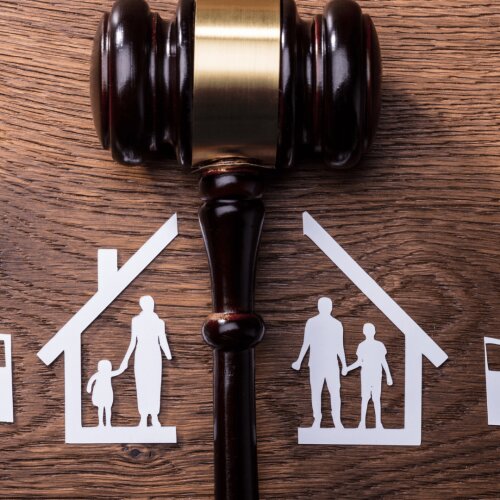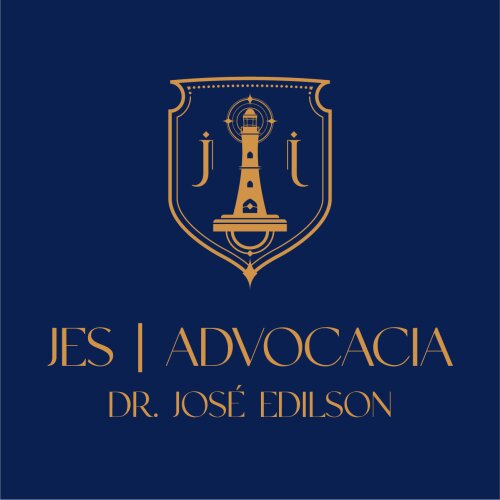Best Adoption Lawyers in Brazil
Share your needs with us, get contacted by law firms.
Free. Takes 2 min.
Free Guide to Hiring a Family Lawyer
Or refine your search by selecting a city:
List of the best lawyers in Brazil
About Adoption Law in Brazil
Adoption in Brazil is governed by the Brazilian Adoption Law, which is part of the Child and Adolescent Statute (ECA). This legal framework ensures that adoption processes prioritize the best interests of the child while providing them with a loving and permanent family environment. Adoption can be national or international, and is available to Brazilian citizens, naturalized citizens, and international adopters under specific conditions. The process typically involves a rigorous assessment to ensure the suitability of prospective adoptive parents, the consent of biological parents when applicable, and legal clearance from relevant authorities.
Why You May Need a Lawyer
Adopting a child in Brazil can be a complex legal process. A lawyer specializing in family law and adoption can provide invaluable assistance in various situations, such as:
- Navigating through the legal requirements and paperwork involved in the adoption process.
- Ensuring compliance with both national and international adoption laws.
- Resolving disputes or complications that may arise during the adoption proceedings.
- Representing your interests in court if required by the adoption process.
- Assisting with the finalization of the adoption and ensuring all legal aspects are covered.
Local Laws Overview
Key aspects of local laws governing adoption in Brazil include:
- Eligibility: Prospective adoptive parents must be at least 18 years old and at least 16 years older than the adoptee.
- Assessment Process: Adoption applicants are required to undergo a thorough assessment by social services, which includes home visits and evaluations.
- Adoptee’s Consent: Children over the age of 12 must provide consent to be adopted.
- Legal Clearance: Both national and international adoptions must be approved by the Brazilian judiciary system.
- Priority for National Adoption: Brazilian law prioritizes finding domestic solutions for children in need of adoption before considering international adopters.
Frequently Asked Questions
What is the minimum age required to adopt in Brazil?
The minimum age to adopt in Brazil is 18, and the adopter must be at least 16 years older than the child to be adopted.
Can single individuals adopt in Brazil?
Yes, single individuals are permitted to adopt children in Brazil as long as they meet all the legal criteria and are deemed suitable by authorities.
Is it possible to adopt a newborn baby in Brazil?
Yes, but it typically involves a long wait as newborn adoptions are less common, with priority given to placing children with family members or in domestic guardianship arrangements.
How does international adoption work in Brazil?
International adoption is possible under the Hague Convention guidelines, involving additional legal steps and coordination with both Brazilian and foreign authorities to ensure compliance with international standards.
What documents are required for adopting a child in Brazil?
Documents typically include identification, proof of income, criminal background checks, medical clearance, and a psychosocial report prepared by authorized professionals.
How long does the adoption process take in Brazil?
The time frame varies based on several factors including the type of adoption, the age of the child, and court schedules. It can typically take anywhere from several months to a few years.
Is it possible to adopt a relative in Brazil?
Yes, adoption by relatives is possible and can sometimes streamline the process, but it still requires legal proceedings and court approval.
Are there any fees associated with adopting a child in Brazil?
There are generally no fees imposed for the adoption itself, but prospective parents may incur costs related to legal advice, documentation, and court procedures.
What role do biological parents play in the adoption process?
If the biological parents are alive and have not abandoned the child, they must consent to the adoption. In some cases, a court may terminate parental rights due to neglect or inability to care for the child.
Can adopted children access information about their biological parents?
Adopted children have the right to access information about their biological origins once they reach the age of 18, provided they request it formally.
Additional Resources
For more information or assistance regarding adoption in Brazil, consider reaching out to:
- The National Adoption System (SNA): A government body that manages adoption processes and matches available children with approved families.
- Brazilian Bar Association (OAB): Provides resources and guidance on legal matters, including adoption.
- Child Welfare Organizations: Groups such as SOS Children's Villages and Grupo de Apoio à Adoção (GAA) offer support and advocacy for both adopters and adoptees.
- Consulate or Embassy: For international queries, seek advice from your local consulate for guidance on international adoption procedures.
Next Steps
If you believe adoption is the right choice for your family and are considering legal assistance, here are some steps to take:
- Consult with a lawyer who specializes in family law and adoption for tailored legal guidance.
- Gather all necessary documentation and understand the legal requirements beforehand.
- Contact local adoption agencies or governmental bodies to formalize your interest and begin the process.
- Be prepared for interviews and evaluations as part of the assessment process.
- Remain informed of any changes in local or international adoption laws that may affect your application.
Lawzana helps you find the best lawyers and law firms in Brazil through a curated and pre-screened list of qualified legal professionals. Our platform offers rankings and detailed profiles of attorneys and law firms, allowing you to compare based on practice areas, including Adoption, experience, and client feedback.
Each profile includes a description of the firm's areas of practice, client reviews, team members and partners, year of establishment, spoken languages, office locations, contact information, social media presence, and any published articles or resources. Most firms on our platform speak English and are experienced in both local and international legal matters.
Get a quote from top-rated law firms in Brazil — quickly, securely, and without unnecessary hassle.
Disclaimer:
The information provided on this page is for general informational purposes only and does not constitute legal advice. While we strive to ensure the accuracy and relevance of the content, legal information may change over time, and interpretations of the law can vary. You should always consult with a qualified legal professional for advice specific to your situation.
We disclaim all liability for actions taken or not taken based on the content of this page. If you believe any information is incorrect or outdated, please contact us, and we will review and update it where appropriate.
Browse adoption law firms by city in Brazil
Refine your search by selecting a city.
















